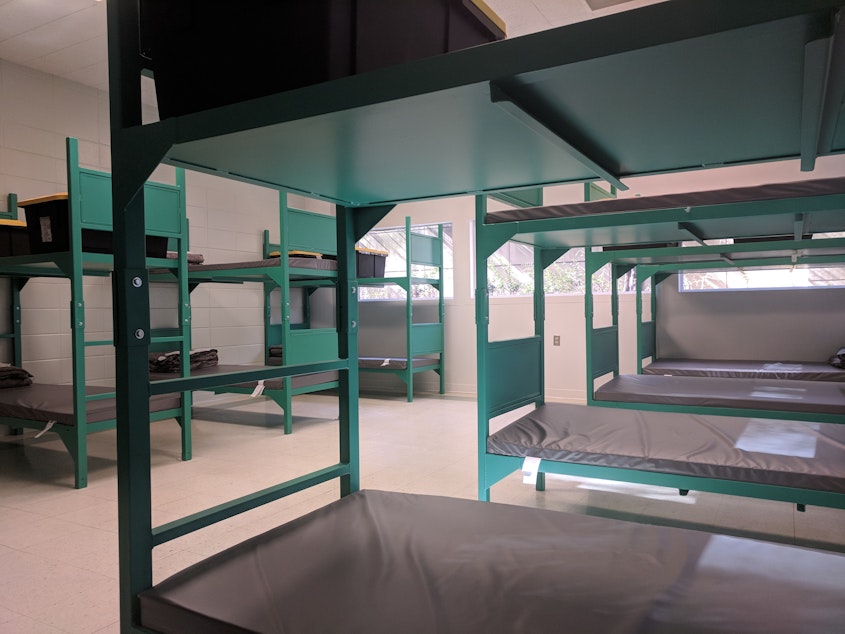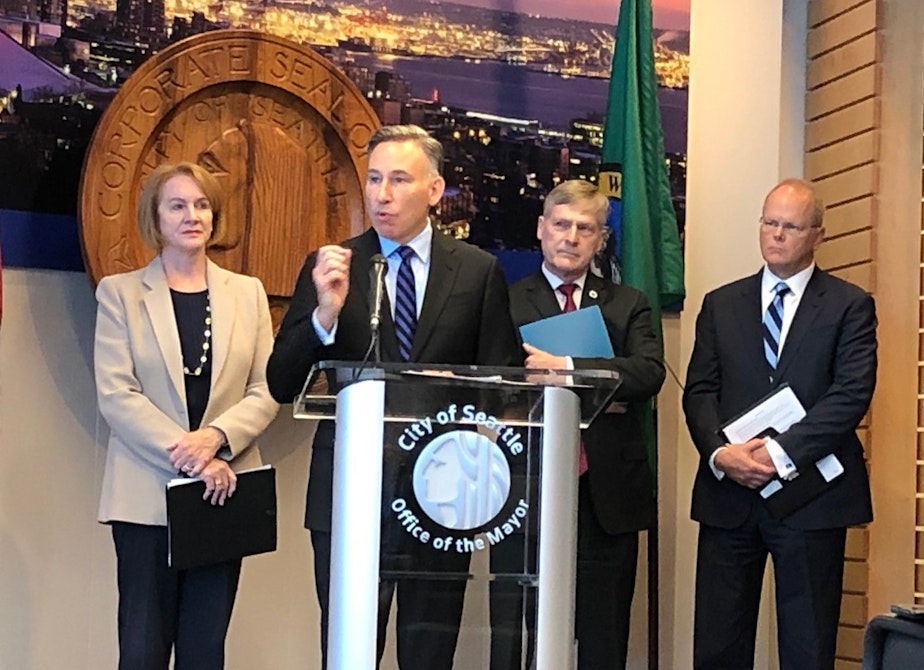Prolific offenders in Seattle: New plans to keep them in check

Seattle and King County lawmakers announced proposals Thursday focused on criminal offenders who have been repeatedly arrested for low-level crimes.
They say these pilot projects will fill gaps in the system that keep the offenders from completing parole or getting access to services that would break the cycle.
They include a new shelter in the King County Jail that would offer substance abuse treatment, new dedicated probation officers focused on these offenders, and “reentry” services for people being released after very brief jail stays.
“This is not creating some kind of minimum security detention facility,” said Dow Constantine, the county executive. “This is an enhanced shelter with 24-hour services, no one is going to be compelled or forced to reside there.”

Constantine said in addition to the homeless shelter already using the west wing of the King County jail, they’ll seek funding for an enhanced shelter on the second floor with 60 additional beds, where people can voluntarily receive drug treatment and other services.
The ideas are the outgrowth of a working group of prosecutors, municipal court judges, and King County human services agencies convened by Seattle Mayor Jenny Durkan last spring.
Sponsored
The issues posed by low-level, repeat offenders came to prominence when business and neighborhood groups published the “System Failure” report back in February, compiled by Scott Lindsay, the former public safety adviser to Mayor Ed Murray.
The report examined the people most frequently arrested in Seattle and documented that they struggle overwhelmingly with substance abuse disorder and homelessness, and some have mental illness.
They tended to be arrested and released repeatedly for misdemeanor-level offenses like shoplifting and in some cases more destructive or threatening behavior.
Sponsored
It would cost $4 million to remodel the jail space into the shelter (and build entrances to the outside of the building so people can come and go) and $800,000 to operate – King County and Seattle are proposing to split these costs.
Another proposal would help connect people with services after shorter stays in jail. Constantine said most spend just 12 to 48 hours in custody, but only people leaving jail after 72 hours or more currently receive “reentry” services.
King County will seek funding for Jail Health Services so staff can help them plan their release and steer them to the new enhanced shelter or other programs.
Seattle will also seek funding for probation counselors to develop a specialized caseload around these clients. City Attorney Pete Holmes noted this group has a very low success rate completing probation.
“Of all the misdemeanants that we deal with, 77 percent successfully complete probation. But in this population it’s only about 17 percent. We clearly need something enhanced in probation that we don’t have today,” he said.
Sponsored
Probation counselors could offer shorter sentences for offenders willing to engage in substance abuse treatment, according to a city press release. Municipal Court presiding judge Ed McKenna took part in the working group and noted that the court is sharing the cost of the probation pilot.
“We appreciate the working group members prioritizing probation as one of the four strategies,” McKenna said in a statement. “I am hopeful the pilot projects will improve community safety and help individuals make lasting, meaningful change in their lives.”
To proceed, these pilot programs need approval by the King County Council and Seattle City Council. They would take several months to fully implement. Jon Scholes is President of the Downtown Seattle Association. He said people who live and work downtown remain concerned about public safety and so he’s encouraged by these proposals.
“We need to evaluate this,” he said. “I think they’re good first steps. Credit to the mayor and the county executive for making investments, and now we need the county and city councils to approve them.”




